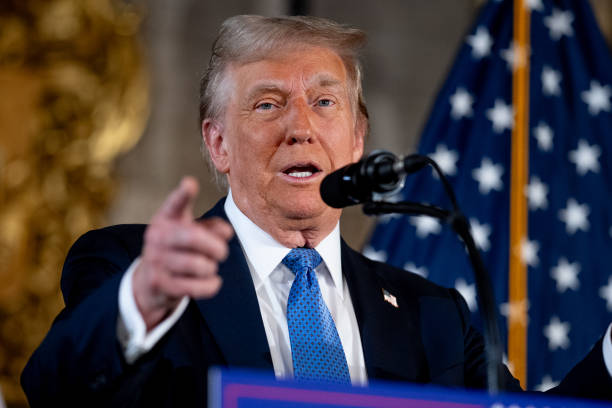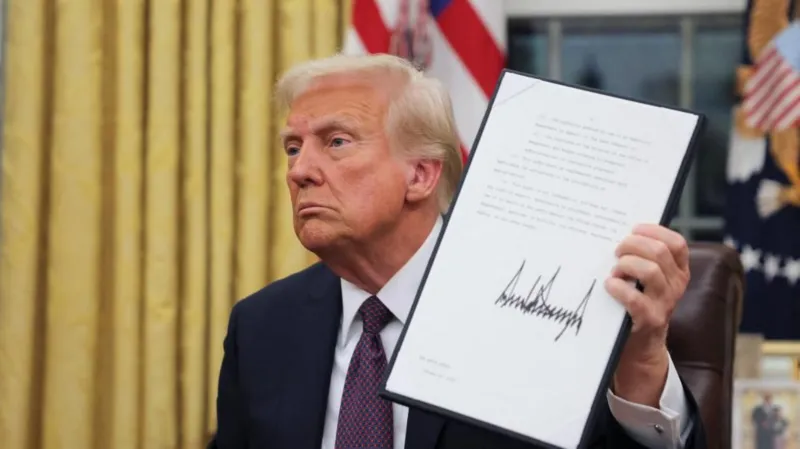In recent years, discussions about territorial acquisitions and control of strategic locations have surfaced in global politics. One notable example is the attention drawn to Greenland and the Panama Canal during the Trump administration. Greenland, an autonomous territory of Denmark, and the Panama Canal, a vital waterway connecting the Atlantic and Pacific Oceans, have both been mentioned in geopolitical rhetoric. While neither is available for sale, statements and implications from former President Donald Trump about acquiring or exerting control over them sparked significant debate and raised questions about U.S. foreign policy and global diplomacy.
Why Greenland and the Panama Canal?
Greenland, the world’s largest island, holds strategic value due to its location in the Arctic and its vast untapped natural resources, including rare earth minerals and oil. As climate change accelerates ice melting in the Arctic, new shipping routes and resource opportunities are emerging, making Greenland a geopolitical hotspot. The Trump administration’s interest in purchasing Greenland, which was made public in 2019, was met with surprise and rejection by Denmark and Greenland’s government. The proposal was seen as both unrealistic and disrespectful, straining relations between the U.S. and Denmark.
The Panama Canal, on the other hand, is a man-made marvel that has been a cornerstone of global trade since its completion in 1914. Although the U.S. originally constructed and controlled the canal, it was handed over to Panama in 1999 under the terms of the Torrijos-Carter Treaties. Despite this, the canal remains a critical asset in international shipping and U.S. economic interests, leading to periodic debates about its security and accessibility.
Trump’s Rhetoric: National Interest or Overreach?
Trump’s rhetoric surrounding these strategic locations was emblematic of his unconventional approach to diplomacy and his emphasis on U.S. dominance. In Greenland’s case, his public suggestion of a purchase was dismissed as absurd by many observers. The Danish Prime Minister called it “an absurd discussion,” and the episode prompted a diplomatic fallout, including the cancellation of a planned state visit to Denmark.
Regarding the Panama Canal, while Trump did not explicitly propose taking control, his administration often voiced concerns about Chinese influence in Panama. China’s Belt and Road Initiative and its growing presence in Latin America have sparked fears among U.S. policymakers about Beijing’s potential sway over key infrastructure, including the canal.
Implications for Global Politics
These actions and statements underline broader themes in U.S. foreign policy under Trump: a transactional approach to diplomacy, a focus on tangible assets, and a willingness to disrupt traditional norms. While some praised Trump for being bold and putting U.S. interests first, others criticized his methods as brash and counterproductive, damaging relationships with allies and undermining America’s global standing.
Greenland’s rejection highlighted the importance of respecting sovereignty and diplomatic decorum. Similarly, any discussion about reclaiming influence over the Panama Canal would require nuanced negotiation and respect for Panama’s sovereignty.
The Broader Context
Both Greenland and the Panama Canal are symbols of the shifting dynamics in global geopolitics. The Arctic is becoming an increasingly contested region due to climate change, and control of key trade routes like the Panama Canal remains critical in an interconnected world. While the U.S. continues to prioritize its strategic interests, heavy-handed or unorthodox approaches risk alienating allies and undermining long-term objectives.
Trump’s threats or suggestions regarding Greenland and the Panama Canal may have been intended to project strength and assertiveness, but they also underscored the need for careful diplomacy in navigating complex international issues. These episodes serve as reminders of the delicate balance required in global leadership, where ambition must be tempered by respect for international norms and relationships.




















